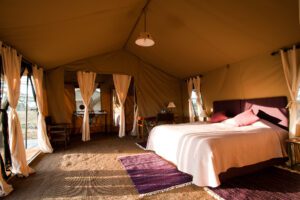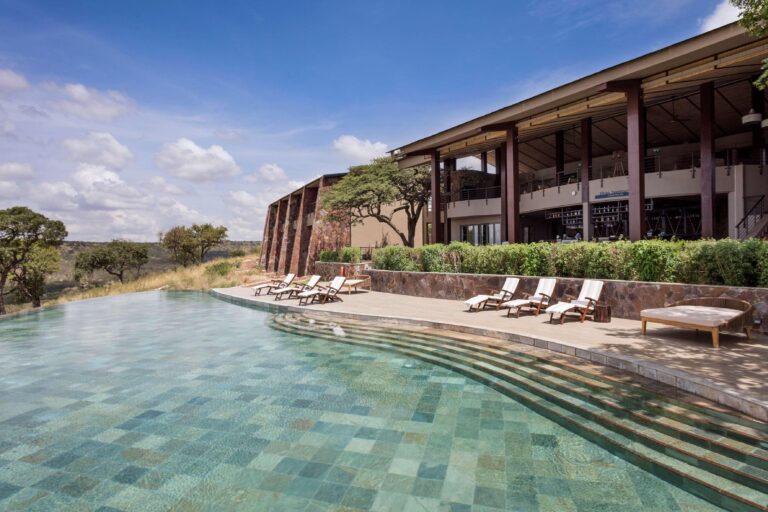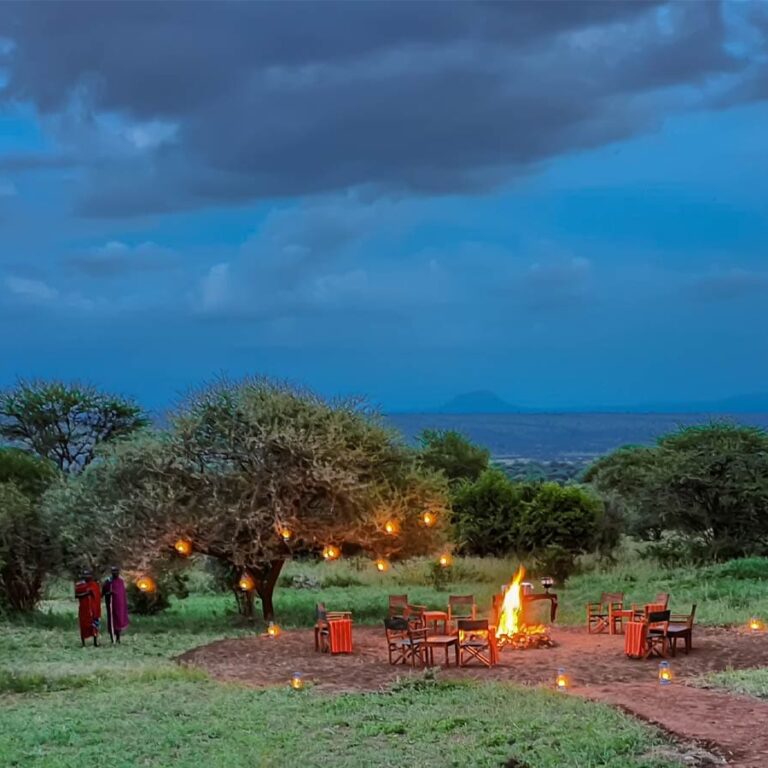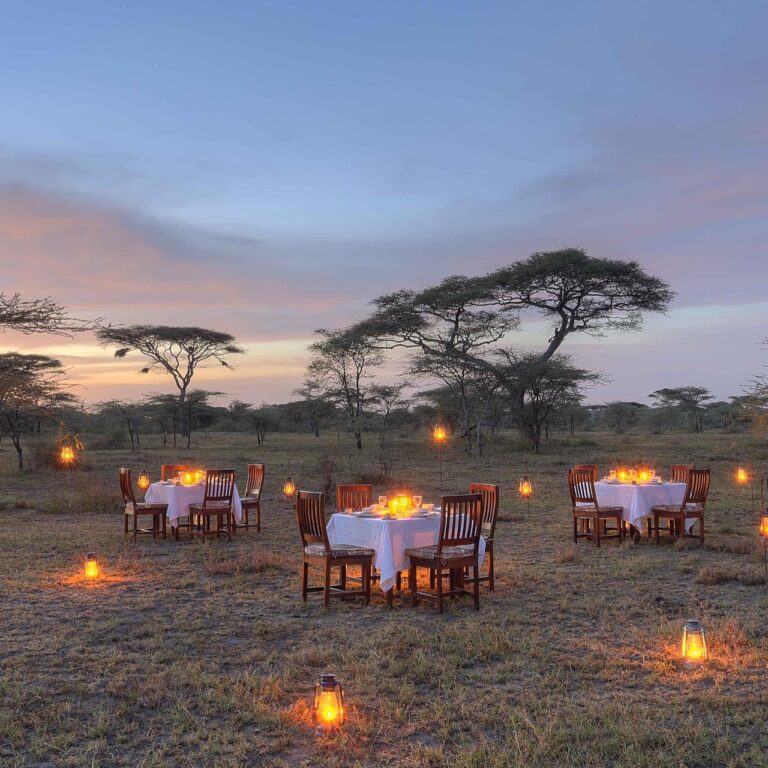Travel Tips – 10 Things to Know Before Going on a Safari in Tanzania
Explore the best 10 things you need to know about a Tanzania Safari: View the sunrise over Mount Kilimanjaro in the Serengeti or witness great wildebeest along in the Great Migration to Tanzania safari or seat at the white sand of Zanzibar beach. Go step by step to our latest travel advice and know when to go for a safari in Tanzania. There a several essential things to know before you book Tanzania Safaris. Just follow as step by to know best Travel tips from ABC and get idea on planning classic African Safari trips.
Tanzania Safari holds a remarkable wildlife experience and is without a doubt one of Africa’s best destinations to have the best safari experience. First time for your African Safari? View of most interesting top 10 Travel Tips when going on an African Safari. Come around and look at things You Need to Know before Going on a Tanzania Safari.
1. Choose the Perfect Tanzania Safari Destination for You
Tanzania is one of the most popular safari destinations in Africa, known for its vast wilderness areas, incredible wildlife, and stunning landscapes. With so many options to choose from, it can be overwhelming to decide which Tanzania safari destination is the perfect fit for you First-Time Tips. Here are some suggestions based on different interests and preferences.
Serengeti National Park
If you want to witness the Great Migration, where millions of wildebeest and other grazing animals cross the Serengeti in search of fresh pastures, then Serengeti National Park is the ideal destination. 10 things you need to know about a Tanzania Safari the park also boasts an abundance of predators such as lions, leopards, and cheetahs. Above is the African big five and where to find them in Tanzania as outline.
Ngorongoro Conservation Area
For a unique and unforgettable experience, visit Ngorongoro Crater, the world’s largest intact caldera. 10 things you need to know about a Tanzania Safari the crater is home to a variety of wildlife, here is Where to See the “Big Five” in Tanzania (lion, leopard, elephant, rhino, and buffalo), and provides stunning views of the surrounding landscape.
Tarangire National Park
Known for its large herds of elephants, Tarangire National Park is a great destination for wildlife enthusiasts 10 things you need to know about a Tanzania Safari. It is also home to other animals such as giraffes, zebras, and various species of antelope, as well as over 550 species of birds.
Selous Game Reserve
If you’re looking for a more off-the-beaten-path safari experience, consider Selous Game Reserve. It is one of the largest protected areas in Africa and offers boat safaris, walking safaris, and fly-camping experiences in addition to traditional game drives 10 things you need to know about a Tanzania Safari. The reserve is known for its large population of African wild dogs and is also home to elephants, lions, hippos, and more.
Mahale Mountains National Park
For a unique safari experience, consider visiting Mahale Mountains National Park.
This remote park is located on the shores of Lake Tanganyika and is home to one of the largest populations of chimpanzees in the world. Visitors can hike to observe these intelligent primates in their natural habitat.
2. Choose the Perfect best time to visit Tanzania
The best time to visit Tanzania largely depends on your interests and what you want to experience during your trip.
Overall, the best time to visit Tanzania largely during the dry season from June to October. It usually depends on what you want to experience during your trip.
It is worth noting that Tanzania can be visited year-round, and each season offers its unique highlights and experiences. Here are some factors to consider when choosing the best time to visit Tanzania:
Wildlife Migration:
If witnessing the Great Migration is on your bucket list, then the best time to visit Tanzania is between July and October. This is when millions of wildebeest, zebras, and other grazing animals cross the Serengeti in search of fresh pastures 10 things you need to know about a Tanzania Safari. It is an incredible natural spectacle that is not to be missed.
December and February is calving season in southern Serengeti National Park time of giving the newborn offspring 10 must-know Serengeti safari tips. There a lots of Things to do in Serengeti National Park like balloon, visit hippo pool, pick nick site etc. May- June Grumeti river crossing.
Dry Season: The dry season, which runs from June to October, is generally the best time to visit Tanzania for game viewing. During this time, the animals gather around waterholes and rivers, making them easier to spot. The weather is also cooler and drier, making it more comfortable for game drives and other outdoor activities.
Bird Watching
If you’re a bird lover, then the best time to visit Tanzania is during the wet season, which runs from November to May. This is when migratory birds from Europe and Asia flock to Tanzania, and resident birds are also in breeding plumage.
Beach Vacation:
If you’re planning a beach vacation in Tanzania, then the best time to visit is during the dry season, which runs from June to October.
The beaches in Zanzibar, Mafia Island, and other coastal areas are at their best during this time, with clear blue skies and calm seas.
Hiking and Climbing:
The best time to go hiking and climbing in Tanzania is during the dry season, which runs from June to October. This is when the weather is cooler and drier, making it easier to trek to the summit of Mount Kilimanjaro or hike in the Ngorongoro Conservation Area.
3. Packing Perfect List for Tanzania Safari gear
When packing for a Tanzania safari, it is essential to pack light, practical, and comfortable clothing suitable for the African climate. Here is a list of items you may want to consider bringing:
Clothing
Pack lightweight and breathable clothing suitable for warm weather. Long-sleeved shirts and pants are recommended to protect against the sun, bugs, and thorny vegetation 10 things you need to know about a Tanzania Safari. Neutral-colored clothes are preferable to blend in with the environment and avoid attracting wildlife. Pack a warm layer for the evenings as temperatures can drop, especially during the dry season. Don’t forget to pack a raincoat or poncho for the wet season.
Footwear
Comfortable walking shoes or hiking boots with good grip and ankle support are recommended. Sandals or flip flops may be appropriate for beach destinations or lodges with swimming pools.
Hat and Sunglasses
A wide-brimmed hat and sunglasses are essential to protect against the sun’s glare and heat. Insect Repellent and Sunscreen – Tanzania is home to mosquitoes and other biting insects, so pack a good quality insect repellent with DEET. Sunscreen with a high SPF is also necessary to protect against the sun’s harmful rays.
Camera and Binoculars – A good quality camera and binoculars are essential for wildlife viewing and capturing the breathtaking landscapes of Tanzania. Medications Pack any prescription medications and basic first aid supplies. It’s also a good idea to carry antihistamines, painkillers, and diarrhea medication.
Travel Documents
Pack your passport, travel insurance, and any necessary visas. It’s a good idea to make copies of these documents and store them separately in case of loss or theft. Money and Payment Options – Tanzania’s currency is the Tanzanian Shilling, but US dollars are widely accepted. Bring cash in small denominations for tipping and souvenirs. Credit cards are accepted in larger hotels and lodges, but it’s always a good idea to carry some cash.
Backpack or Daypack
A small backpack or daypack is useful for carrying essentials during game drives or walks. Water Bottle – It’s important to stay hydrated during your safari, so bring a refillable water bottle to minimize plastic waste and keep water cold. Some lodges and camps provide filtered water for guests.
Overall, when packing for a Tanzania safari, think practical, comfortable, and appropriate for the climate and activities you will be doing. Remember to pack light, as most safari vehicles have limited luggage space.
4. Check Recommended Health and Safety Precautions
Tanzania is a relatively safe country to visit, but it is always advisable to take necessary health and safety precautions to ensure a smooth and enjoyable trip 10 things you need to know about a Tanzania Safari. Also When going on a safari in Tanzania, it’s essential to take certain health and safety precautions to ensure a safe and enjoyable experience because your health is your first and foremost concern. Here are some recommendations:
Vaccinations
Make sure you are properly vaccinated and medically cleared to go on Safari. It’s essential to consult with a travel health specialist to ensure that all necessary vaccinations are up to date, and any additional recommended vaccinations are received. Some recommended vaccines for Tanzania include yellow fever, hepatitis A, and typhoid.
Malaria
Tanzania is a high-risk malaria zone, so it’s crucial to take malaria prophylaxis medication as prescribed by a doctor. Also, remember to use insect repellent and wear long-sleeved clothing to avoid mosquito bites.
Food and Water
It’s advisable to drink only bottled or filtered water and avoid ice in drinks. Also, be cautious when consuming street food and ensure that all food is cooked thoroughly.
Sun Protection
Tanzania is close to the equator, and the sun’s intensity can be high, so it’s essential to use sunscreen with a high SPF, wear protective clothing and a hat, and seek shade during the hottest part of the day.
Road Safety – Tanzania has a high incidence of road accidents, so it’s crucial to use a reputable and reliable tour company with well-maintained vehicles and professional drivers. Always wear a seatbelt, and avoid traveling at night.
Wildlife Safety
Always follow the safety instructions given by your guide during game drives or walks. Do not leave the vehicle unless it is safe to do so and avoid getting too close to wildlife, especially predators.
Personal Security
Tanzania is generally a safe country, but it\’s advisable to be vigilant and avoid carrying large sums of cash or expensive items. Use a hotel safe to store valuables and avoid walking alone at night. Travel Insurance – It’s essential to have comprehensive travel insurance that covers medical emergencies, repatriation, and trip cancellation.
5. Tanzania offer different variety of Accommodation options
Tanzania offers a variety of accommodation options to suit all budgets and preferences, the top most tips to get the most out of your Tanzania safari adventure. Here are some of the most popular types of accommodation in Tanzania:
Safari Lodges
Safari lodges are often located within or near national parks and game reserves, and they offer comfortable and spacious rooms with en-suite bathrooms. Lodges range from budget-friendly to luxurious, with facilities such as swimming pools, restaurants, and bars.
Tented Camps
Tented camps are an excellent option for those seeking an authentic safari experience. They offer comfortable and stylish tents with en-suite bathrooms, often located in secluded areas of the bush. Tented camps are available in a range of prices, from budget-friendly to luxury.
Beach Resorts
Tanzania’s coastline offers some of the world’s most beautiful beaches, and beach resorts are an excellent option for those seeking relaxation and adventure. Resorts range from budget-friendly to luxurious, with facilities such as swimming pools, restaurants, and bars.
Guesthouses
Guesthouses are a budget-friendly option and are often located in small towns and villages near popular attractions. They offer basic facilities and rooms with shared bathrooms.
Homestays
Homestays offer visitors a chance to experience the local culture and way of life. They provide basic accommodation in a family home, and guests can participate in daily activities such as cooking and farming.
Mobile Tented Camps
Mobile tented camps are set up in remote areas of national parks and game reserves and offer an exclusive and private safari experience. Things You Need to Know Before Going on a Tanzania Safari. They are often booked on an exclusive basis and provide all the facilities of a traditional safari camp.
Overall, Tanzania offers a wide variety of accommodation options to suit all budgets and preferences, from budget-friendly guesthouses and campsites to luxury lodges and resorts. Whatever your choice, Tanzania’s accommodation options will provide you with comfort and convenience during your stay.
6. Safari guides are experts at searching animals and integral for your experience
Yes, our safari guides in Tanzania are experts at searching for animals. They have a keen eye for spotting animal tracks, identifying animal behavior and listening for sounds to locate wildlife.
Our Safari guides are trained to read the signs and tracks left by animals, such as paw prints, dung, broken branches, and other signs that indicate the presence of animals. They also use their knowledge of animal behavior to search for them in their natural habitats. For example, they know where to look for predators such as lions and leopards, which tend to hide in bushes or trees during the day and come out to hunt at night.
Furthermore, our safari guides often communicate with other guides and park rangers, sharing information about the whereabouts of animals. This allows them to search in different areas of the park and increase the chances of finding animals during the safari.
7. Be Prepared for long Tanzania Safari Drives
Yes, being prepared for long drives is essential when going on a Tanzania safari. Many of the national parks and reserves are vast, and it can take several hours to travel between different areas. Here are some tips to help you prepare for long drives during your Tanzania safari:
Dress comfortably: Wear comfortable clothing that allows you to move freely and doesn’t restrict your movement. Loose-fitting, breathable fabrics are ideal, and layers can be added or removed as the temperature changes.
Bring snacks and water: Bring plenty of water and snacks to keep you hydrated and energized during the long drives. Most safari vehicles have a cooler box, so you can bring your drinks and snacks with you.
Bring entertainment: Bring books, music, or games to keep you entertained during the long drives Tanzania safari tips, 10 tips to get the most out of your Tanzania safari adventure. Some safari vehicles also have a charging port, so you can bring your electronic devices.
Take breaks: It’s important to take breaks during long drives to stretch your legs, use the restroom, or take some photos. Many parks have designated picnic areas or rest stops where you can stop and take a break.
Be prepared for bumpy roads: The roads in some of the parks and reserves can be bumpy and uneven, so be prepared for a rough ride. Wear a seatbelt, hold on tight, and be ready for some adventure.
Enjoy the scenery: The landscapes and wildlife in Tanzania are breathtaking. Take advantage of the long drives to appreciate the beautiful scenery and wildlife that you may encounter along the way.
8. Consider a Tanzania private safari
Considering a private Tanzania safari is an excellent option for those who want a more personalized experience. Here are some reasons why a private safari may be the right choice for you:
Flexibility: With a private safari, you have more flexibility in terms of itinerary and scheduling. You can customize your trip to suit your interests, and you can travel at your own pace without having to worry about a group’s schedule.
Personalized attention: A private safari allows for more personalized attention from your safari guide, who can provide you with detailed information about the wildlife, landscapes, and culture of Tanzania.
Privacy: A private safari provides a more intimate and private experience, allowing you to enjoy the wildlife and scenery without distractions.
Comfort: With a private safari, you can choose your accommodation and safari vehicle, ensuring that you have the level of comfort and luxury you desire.
Photography: If you are a photography enthusiast, a private safari can be the ideal way to get the best shots. Your guide can take you to the best locations for photography and provide you with tips and techniques to improve your skills.
Safety: A private safari can also be a safer option as you can control who you travel with and minimize the risk of exposure to infectious diseases.
In summary, a private Tanzania safari provides you with a more customized and personalized experience, allowing you to tailor your trip to your interests and preferences. It can also provide you with more privacy, comfort, and safety, making it an excellent option for those who want a more exclusive and intimate safari experience.
9. Tanzania is a Safe Place for Tourists
Is Tanzania safe for tourists? Is Tanzania safe for solo travelers? female/male, Tanzania is generally considered a safe country for tourists to visit. Top Things You Need to Know Before Going on a African Safari. The Tanzanian government places a high priority on the safety and security of its citizens and visitors, and there is a low incidence of crime in the country. However, as with any travel destination, there are certain precautions that tourists should take to ensure their safety. Here are some general safety tips for tourists traveling to Tanzania:
Choose reputable tour operators and accommodations: When booking your safari or other activities, be sure to choose reputable tour operators and accommodations that have a good track record of safety and security.
Be aware of your surroundings: Pay attention to your surroundings, particularly in crowded areas, and avoid wearing flashy jewelry or carrying large amounts of cash. Avoid walking alone at night: As in any city, it is generally best to avoid walking alone at night, particularly in areas that are not well-lit.
Take necessary health precautions: Be sure to take the necessary health precautions before and during your trip, such as getting the appropriate vaccinations and using insect repellent to prevent mosquito-borne diseases like malaria. Respect local customs: Be respectful of local customs and traditions, particularly in rural areas or when visiting religious sites.
Use caution when swimming or snorkeling: If you plan to swim or snorkel in Tanzania, be aware of the strong currents and follow the instructions of your guide to ensure your safety.
10. Different Kind of Safari in Tanzania
Tanzania offers a wide variety of safaris to suit different interests and preferences. Also Tanzania offers a diverse range of safaris to suit different interests and preferences, from wildlife safaris to cultural safaris, walking safaris, mountain climbing safaris, and beach safaris. Whatever your interests, there is sure to be a safari that will suit your needs in Tanzania. Here are some of the different kinds of safaris you can enjoy in Tanzania:
Wildlife safaris
Tanzania is famous for its incredible wildlife, and a wildlife safari is one of the most popular types of safaris. Visitors can see a wide variety of animals, including the Big Five (lion, elephant, buffalo, leopard, and rhino). As well as wildebeest, zebras, giraffes, hippos, crocodiles, and many more.
Bird watching safaris
Tanzania is home to over 1,000 species of birds, making it a paradise for bird watchers. The country has many excellent bird watching destinations, including the Serengeti, Lake Manyara, and Tarangire National Park.
Cultural safaris
Tanzania is a culturally rich country with over 120 ethnic groups, each with its unique traditions and customs. A cultural safari allows visitors to experience the local way of life. Visit traditional villages, and learn about the history and culture of the people.
Walking Safaris
For those who enjoy a more active adventure, walking safaris are an excellent option. Visitors can explore the wilderness on foot, accompanied by an experienced guide who can provide insights into the flora and fauna of the area.
Mountain climbing Safaris
Tanzania is home to Africa’s highest peak, Mount Kilimanjaro, which attracts thousands of climbers each year. Climbing Kilimanjaro is a challenging but rewarding experience, and there are also other lesser-known peaks and mountains to explore in the country.
Beach Safaris
Tanzania has a beautiful coastline, and a beach safari is a great way to relax and unwind after a safari. The country’s beaches offer opportunities for swimming, snorkeling, and diving, and there are also many picturesque islands to visit.
11. Tanzania Safari Flights + Other accessibility
Country is well-connected with the rest of the world. One of amazing Things You Need to Know Before Going on a Tanzania Safari. There are several options for getting there, as well as for moving around within the country. Tanzania is well-connected and accessible, with several options for getting there and moving around within the country. The best option will depend on your budget, travel preferences, and itinerary. Here are some of the options:
Flights: Tanzania has several international airports, including Julius Nyerere International Airport in Dar es Salaam. Kilimanjaro International Airport near Arusha. Abeid Amani Karume International Airport in Zanzibar. Many airlines offer flights to Tanzania, including major international carriers such as Emirates, Ethiopian Airlines, Turkish Airlines, and Qatar Airways.
Road: Tanzania has an extensive road network, and there are several options for traveling around the country by road. However, the quality of the roads can vary, and some areas can be challenging to access, particularly during the rainy season.
Train: Tanzania also has a train network that connects major cities, including Dar es Salaam, Arusha, and Dodoma. However, the train service is limited, and the routes can be slow.
Charter flights: For those looking for a more luxurious and convenient option, charter flights are available in Tanzania. These flights offer the flexibility of flying directly to your destination. Many lodges and camps offer their own airstrips for private charters.
Safari vehicles: Once in Tanzania, safari vehicles are the most common mode of transportation for game drives and safaris. These vehicles are typically 4x4s with open roofs, allowing for excellent views of the wildlife.
12. Responsible travel tour Tour Operator
Being mindful of the environment is essential when going on a safari in Tanzania. Here are some tips to help minimize your impact on the environment: Use a reputable tour operator. Choose our tour operator that follows responsible travel practices and has a commitment to sustainability.
Stick to designated trails and roads – Stay on designated trails and roads to avoid damaging vegetation and disturbing wildlife. Avoid littering – Bring a reusable water bottle and avoid leaving trash behind. Dispose of waste properly in designated bins or take it with you.
Respect wildlife – Observe wildlife from a safe distance and avoid disturbing them. Do not feed or touch wildlife.
Use environmentally-friendly products – Use eco-friendly products such as biodegradable soap and shampoo to avoid polluting water sources. Save water – Conserve water by taking short showers and turning off taps when not in use.
Use electricity sparingly – Turn off lights and unplug chargers when not in use to conserve energy. Support local conservation efforts – Consider donating to local conservation organizations or purchasing products that support conservation efforts.
You can help preserve Tanzania’s unique and fragile ecosystems for future generations to enjoy. Being mindful of the environment is not only responsible but also essential to ensure the long-term sustainability of safaris in Tanzania. TripAdvisor Reviews.








